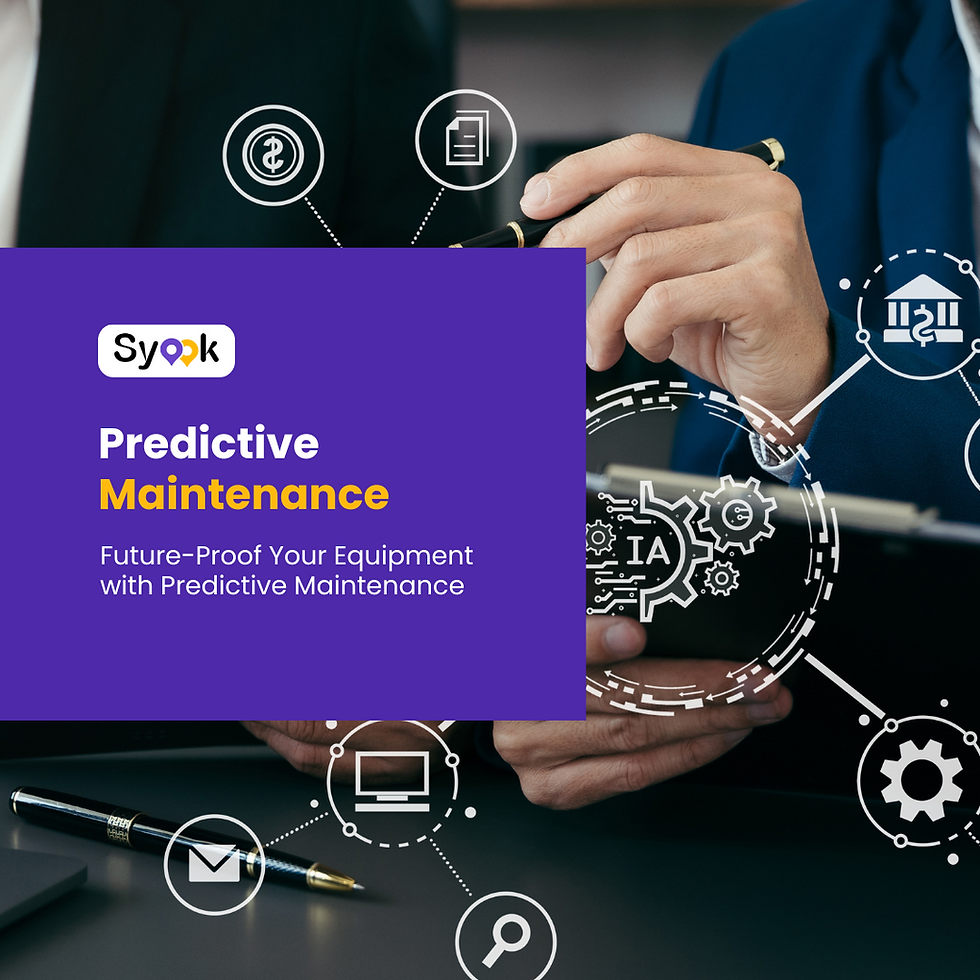IoT in Hospitality: Enabling Smart Operations with Real-time Technology
- Team Syook

- Jun 4, 2024
- 4 min read
Updated: Jun 11, 2024
In the rapidly evolving hospitality industry, staying ahead of technological advancements is crucial for providing exceptional guest experiences and maintaining operational efficiency. The Internet of Things (IoT) integration has emerged as a game-changer, revolutionizing how hospitality facilities operate and interact with guests.
This blog delves into the concept of hyperaware hospitality facilities, highlighting the significance of IoT in modern hospitality and its transformative impact.

Smart Hospitality Operations
Smart hospitality facilities are advanced environments that utilize IoT technologies to create interconnected, intelligent systems within hotels, resorts, and other hospitality venues.
You can gather and analyze vast amounts of data from various devices and sensors, providing real-time insights and enabling automated responses. Such interconnectedness allows for a seamless, personalized guest experience and efficient, proactive management for operators. Hyperaware facilities are at the forefront of innovation in the hospitality sector, from smart rooms that adjust settings based on guest preferences to predictive maintenance that prevents equipment failures.
IoT in Smart Hospitality Operations
IoT technologies enhance guest experience by offering personalized services to their needs in real-time. By enabling better resource management and operational efficiency through real-time data on energy consumption, occupancy levels, and equipment performance, the applications for IoT help to reduce cost and improve sustainability.
When it comes to safety and security within hospitality facilities, advanced AI surveillance systems, real-time location tracking, and automated emergency responses are something that you’ll find in common within facilities
Added to this, real-time insights, reports, and dashboards allow managers to enhance guest experience based on guest behaviors and preferences.
Transforming Hospitality Operations with Smart Technology
Guest Experience: IoT devices like smart thermostats, lighting systems, and voice-activated assistants allow personalized in-room experiences. Guests can control their environment and request services via mobile apps, enhancing comfort and convenience.
Operational Efficiency: Real-time monitoring of energy usage, equipment status, and occupancy levels enables proactive maintenance and optimized resource allocation, reducing downtime and operational costs.
Safety and Security: Advanced surveillance, automated access control, and real-time location tracking ensure a secure environment for guests and staff, allowing quick identification and response to security threats.
Resource Management: You can enhance the management of water, electricity, and HVAC systems with smart sensors and analytics, reducing waste and supporting sustainability initiatives.
Staff Productivity: From housekeeping to maintenance you can automate routine tasks and provide real-time updates, allowing staff to focus on guest-facing duties and improving service quality.
Advanced IoT Applications in Enhancing Hospitality Operations
People Productivity and Activity Monitoring
Enhancing Employee Efficiency: streamline tasks, with real-time updates, and automate routine activities, allowing staff to focus on scheduled tasks
Monitoring Guest Activities: Track guest preferences and behaviors to tailor services and enhance the guest experience.
Physical Distance Monitoring and Contact Tracing
Physical Distance Monitoring: Ensures guest and staff safety by maintaining required distances in common areas and during events.
Contact Tracing: Utilize wearable devices and mobile apps to trace contacts, providing alerts and maintaining logs to prevent the spread of illnesses.
Migrating from Break/Fix to Proactive Maintenance
Proactive Maintenance: Implement IoT sensors to monitor equipment health, predict failures, and schedule maintenance before issues arise. Use data analytics from IoT devices to foresee potential malfunctions, reducing downtime and maintenance costs.
Real-Time Location Services
Real-Time Location Tracking: Track and monitor expensive assets and personnel to locate and address issues quickly, improving repair times and service quality. Ensure passenger and crew safety by monitoring their locations in real time. Utilize IoT tracking devices to maintain situational awareness and respond promptly to emergencies.
Efficient Repairs: Deploy IoT-enabled tracking systems to ensure the rapid deployment of maintenance teams and resources.
Mobile Panic Button Location Solutions
Staff Safety with Panic Buttons: Provide staff with IoT-enabled panic buttons for immediate alerts and emergency location tracking. Implement reliable and discreet panic button systems to ensure quick response and staff protection.
Vaping and Air Quality Monitoring
Air Quality Monitoring: Maintain healthy indoor environments by monitoring air quality and detecting pollutants.
Detecting Vaping and Ensuring Clean Air: Use IoT sensors to identify vaping activities and manage air filtration systems for optimal air quality.
Real-time Integrated Emergency Response and Notification
Real-Time Notification: Leveraging IoT technology, the system instantly notifies relevant parties, including emergency responders, security personnel, and occupants of the affected area, as soon as an emergency event is detected or reported.
Customized Alerts: Utilizing IoT sensors and data analysis, notifications can be tailored based on the type and severity of the emergency. For instance, a fire alarm might prompt a different response than a medical emergency alert, ensuring appropriate actions are taken.
Location-Based Alerts: Through IoT-enabled geolocation services, the system accurately pinpoints the emergency's location and dispatches alerts to individuals or teams near the affected area. This ensures swift and efficient responses from the right personnel.
Two-Way Communication: The platform facilitates seamless two-way communication between occupants and emergency responders using IoT-enabled communication devices. This enables real-time updates, instructions, and emergency coordination, enhancing overall response effectiveness.
Conclusion
In conclusion, IoT has revolutionized hospitality, creating smart facilities that enhance guest experiences, optimize operations, and ensure safety. As the hospitality industry evolves, embracing IoT becomes paramount for staying competitive.
Syook, with its advanced IoT solutions, can significantly improve hospitality operations. By leveraging Syook's technology, businesses can monitor productivity, implement real-time promotions, ensure physical distancing, and streamline maintenance.
Syook's expertise in IoT empowers companies to create efficient, secure, and guest-centric environments, driving success in the ever-evolving hospitality sector.




Comments